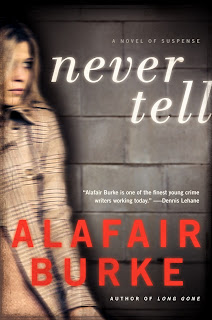One
of the newer catch terms working its way into suburban conversations is
“prepping.” Prepping merely means having our families prepared for any
disaster, long term or just a few days or hours.
Housewife
and homeschool mother Lisa Bedford did what so many mothers are doing, stocking
up on supplies, making survival kits, and ensuring her family not only knew where
those items were, but how and when to use them. She understood that disaster is
traditionally considered some long term life changing event, such as tornados,
hurricanes, earthquakes, war even. But disaster can also be construed as the
shutdown of a city’s water supply or the loss of electrical power for a day or
more. Just go to your local grocery anytime the weatherman predicts a blizzard,
drought, or the possibility of downed power lines, and you’ll quickly grasp,
via the empty shelves, that last minute hording isn’t a viable plan.
Lisa
began blogging about her methods and offering basic, logical advice that didn’t
include the fallout shelters, body armor, and field artillery some folks so
erroneously attribute to the concept of disaster home preparedness.
Soon,
prepping sites and enthusiasts picked up on her common sense approach and
suggestions. One thing led to another, and now Lisa has published her first
book on the subject, “Survival Mom.” In her book, she discusses what kinds and
how much food should be stocked, as well as how long those foods can sit on a
shelf. She also provides a very simple idea that allows for the continued use
of our toilets after we can no longer afford to pour in valuable drinking water
from jugs. Don’t snicker. If you’ve had to live through two or three days
without running water in your house, you know what I’m talking about. And for
those who think their backyard swimming pool should be guarded at all costs,
Lisa explains how swimming pool water should never be considered for the
prevention of dehydration, especially when it comes to children. Fact is,
ingesting the water could make your children quite ill.
Lisa’s
voice is a joy. She infuses lightheartedness into what could be a bland, by the numbers topic
if not skillfully presented and carries the reader along for a very pleasurable reading and learning
experience.
Q)
How did your husband react when he realized you had become serious about
preparing your family and that meant altering a few routines?
A)
I’ve nicknamed my husband The Paranoid Dad, so he was on board with me from the
beginning. Because his main focus is providing for our family by running a
business, I’ve been the one in charge of preparedness but still need his help
with bigger projects, such as enlarging our backyard garden. I think he’s relieved that I’ve taken charge
of this because we’re obviously far better prepared for just about any
emergency, including a personal financial crisis.
Q)
Creating a blog and sharing your ideas is a huge step as it presents a public
vulnerability to critics. Why did you decide to open yourself up that way?
A)
Yes, there have been plenty of critics along the way, but from the beginning I
wanted to be a real person with a real name and face to my readers because I
knew I would be writing about some scary scenarios, things that keep moms awake
at night. I’ve always wanted my readers
to feel as though I was walking right alongside them, encouraging them through
tough times. It’s hard to do that if you
hide behind a pseudonym.
Q)
This book’s success will require you to spend more and more time away from your
family. How do you plan to adjust for those absences?
A)
So far any travel I’ve done has become just another family vacation! We love to travel and spend time with each
other. It never gets old. At some point, however, I may have to be more
selective about which speaking engagements I accept. I currently offer free online classes, and
this allows me to teach and interact with readers while sitting in my home
office. That’s a win-win, all the way
around!
Q)
What is the one critical item every family should have on hand, beyond the
obvious food and water requirements?
A)
Have at least two different ways to heat water and cook food. By heating water, you can sterilize cooking
utensils, purify water, and maintain a healthy level of sanitation, even if the
power goes down for weeks at a time. In
addition, you’ll be able to prepare hot, satisfying meals. I recommend a solar oven and a heavy duty
rocket stove such as the Stove-Tec brand.
The Stove-Tec is very fuel efficient, which means you won’t have to use
large amounts of wood or charcoal to cook a meal. Whatever you choose, though, make sure you’re
able to safely store enough fuel to last at least 3 months.
Q)
Any parting thoughts for those who haven’t read your book yet?
A)
Preparedness is a mindset and a way of life.
Every day I still have to figure out what’s for dinner, keep the laundry
going, and plan birthday parties! Preparedness
is something that becomes part of your life but should never overshadow the
things that bring joy and laughter to your home. And, it’s really no different from how our
great-grandmothers lived, and every other grandma before her! Prepare more and you’ll panic less
when a crisis hits!
DA Kentner is an author and
journalist. www.kevad.net






















